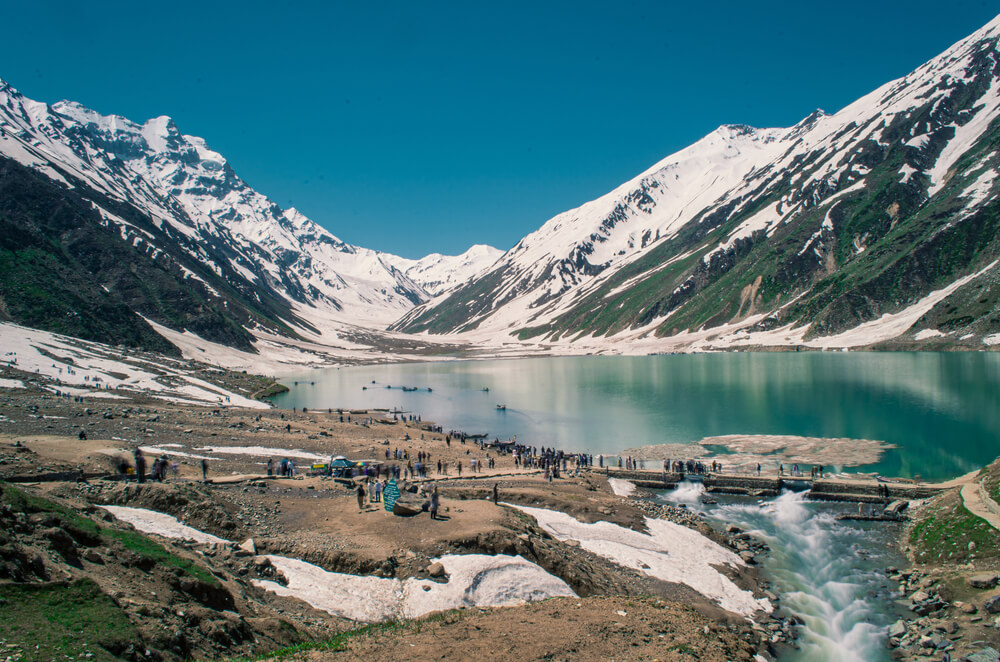Exploring the world doesn't have to be expensive. You can go on amazing excursions without breaking the bank if you have a little forethought,
imagination, and adaptability. These low-cost travel suggestions can help you get the most out of your trip, whether your dreams involve exotic beaches, vibrant cities, or
tranquil mountains.
(toc)
1. Make a plan yet maintain flexibility
Even while
impromptu travel may be thrilling, preparation usually results in lower prices. Investigate locations during their off-peak times of year, when airfare and lodging costs are considerably reduced. To get the best flight, use websites that compare fares and set up price alerts.
You may save a lot of money by being flexible with your vacation dates and
locations. Think over a few places and pick the one with the best offers rather than becoming obsessed with only one. Red-eye and midweek flights are often less
expensive than weekend or peak-time departures.
2. Make Use of Low-Cost Airlines and Other Modes of Transportation
For
budget travelers, low-cost airlines may be a game-changer. They will get you from point A to point B at a fraction of the price, even if they might not have all the extras. Keep in note that there are extra costs for selecting a seat and luggage.
For shorter distances, think about using carpooling services, buses, or trains as other modes of transportation. In certain areas, you can reach your destination without
spending a night in lodging by using an
overnight bus or rail.
3. Look for Reasonably Priced Lodging
Avoid the
upscale hotels and look for more affordable places to stay. For tourists on a tight budget, hostels, guesthouses, and vacation rentals are great options. Numerous alternatives are available on websites such as
Hostel world and
Airbnb to fit your tastes and price range.
Think into house-sitting or home swaps if you're up for unusual adventures. These agreements frequently let you remain in someone's house for free in exchange for looking after their
belongings. Another
fantastic way to meet people and stay for free is through couch surfing.
4. Consume Local Food
Eating in places
frequented by
tourists might be costly. Take advantage of the local culinary scene instead. For genuine and reasonably priced meals, visit markets, street food sellers, and tiny family-run restaurants.
You may also save a lot of money by preparing your own meals and
shopping at food stores. Make use of the kitchen if your lodging has one. You'll experience local foods and culinary methods in addition to saving money.
5. Make Use of Free Attractions and Activities
Numerous
locations provide free or inexpensive attractions and activities. Look into festivals, public parks, museum days, and free walking tours.
Hiking, local exploration, and historical monument visits frequently offer invaluable experiences at no expense.
Look online for discount cards or city passes that provide
discounted admission to several attractions. Furthermore, don't undervalue the importance of just exploring and taking in the local way of life.
6. Take Light Travel
Light
packing might help you avoid paying expensive baggage fees, particularly on low-cost flights. Keep your wardrobe simple and wear items that go well with many outfits. Traveling is made more convenient and cost-effective with a well packed carry-on
luggage.
Purchase a quality travel backpack along with reusable necessities such as toiletries, cutlery, and a water bottle. These
minor actions lessen their influence on the environment and result in savings over time.
7. Make Money While Traveling
When
organizing a lengthy vacation, take into account the possibility of earning money while traveling. Seasonal employment in the hotel industry,
freelancing, or teaching English can all help pay bills and perhaps finance future travels.
Volunteering in return for lodging and meals is an additional choice. Travelers and hosts who are giving these possibilities are connected by websites such as
Work away and WWOOF.
8. Make the Most of Technology
Websites and
applications for smartphones may be quite helpful when traveling on a tight budget. For cheap flights, use apps like Hopper,
Kayak, or
Skyscanner. Rome2Rio and Google Maps aid in understanding and navigating the available transit alternatives.
While TripAdvisor and Yelp give information on reasonably priced meals and entertainment, lodging apps like Booking.com and Agoda regularly offer discounts. Budgeting tools and currency conversion applications make it easier to keep tabs on spending and make sure you don't go over your spending limit.
9. Adopt Public Transit
Avoid using rental vehicles and taxis; public transit is frequently the most cost-effective option. In addition to saving money, metro systems, buses, and trains provide the
opportunity to live like a local.
For further discounts, consider purchasing weekly or monthly transportation passes if you want to be in one location for an
extended period of time. Another great method to save money and explore the city at your own leisure is to walk or ride a bike.
10. Bargain and Purchase Wisely
Bargaining is ingrained in the culture of many places. Do not be afraid to haggle over rates, whether it is for lodging, transportation, or souvenirs. Find a reasonable midway ground and begin with a courteous offer.
Steer clear of expensive tourist stores when looking for
necessities or mementos. For greater bargains, go to small markets or less visited locations instead.
11. Don't Ignore Travel Insurance
Travel insurance may seem like an unnecessary cost, but it's essential for travelers on a tight budget. Massive
expenditures may result from unforeseen medical problems or vacation cancellations. A quality travel insurance policy offers both financial security and
comfort of mind.
12. Keep in Touch Without Going Over Budget
Use
portable Wi-Fi devices or local
SIM cards to avoid expensive roaming fees. Free Wi-Fi is available in many towns and cafés, so you may stay connected without going over
budget.
You may communicate with loved ones back home without paying international call fees by using apps like
Zoom, Skype, or WhatsApp.
13. Pay Attention to Exchange Rates
Make prudent currency exchanges to save money. Steer clear of exchanging in tourist destinations or
airports where exchange rates are frequently
unfavorable. For better rates, utilize ATMs or reputable local banks instead.
You may also save money by using credit cards that don't charge international transaction fees. To prevent getting overcharged, always be informed of the current
currency rate.
14. Acquire Basic Etiquette and Phrases
Gaining a rudimentary awareness of local customs and a few phrases in the language may be quite beneficial. The effort is valued by the locals, and it may even result in better offers or insider
information.
Simple local language expressions like
"please," "thank you," and "how much?" may facilitate and improve your encounters.
15. Establish and Follow a Budget
Make sure your
travel budget is reasonable before you leave. Set up money for activities, lodging, food, transportation, and other costs. To keep tabs on your spending in real time, use
applications like
Spendee or Trail Wallet.
While allowing for rare indulgences, a well-defined financial plan guarantees that you avoid going over budget.
Concluding remarks
It is not
necessary for travel to be costly. You may travel to many places, encounter other cultures, and make lifelong experiences while
managing your expenditures by using these cost-effective travel tips. The greatest adventures are frequently the most
straightforward ones, so gather your belongings, embrace the experience, and keep this in mind.

















